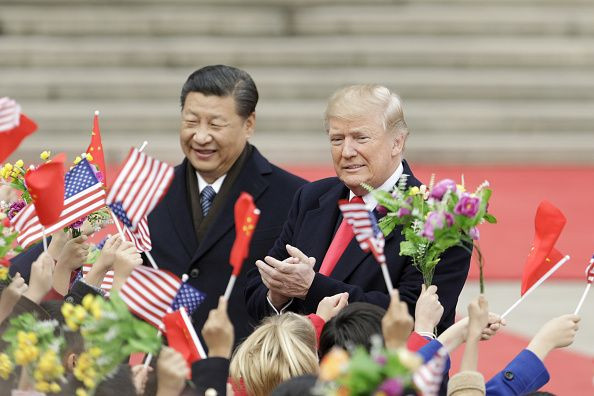Amid Trade Tensions, China Cuts US Debt Holdings To Lowest Level In 2 Years

Amidst soaring trade tensions with the U.S, China reportedly sold the maximum U,.S debt holdings (Treasuries) during March. That was the highest volume of Treasuries sale recorded in more than two years.
According to the data of U.S Treasury Department, China sold $20.5 billion of U.S. government bonds during March. Now the total Treasuries holding with China is down to $1.12 trillion.
This has triggered concerns in the U.S that China is trying to weaponize its position using the status as the U.S government’s largest foreign creditor to gain an upper hand in the trade dispute.
Impact on the bond market
China’s U.S holdings include U.S. government notes, bonds and bills. China’s share of total U.S. debt compared with other global governments has now declined to 17.3 percent.
Japan is in the second position with $1.08 trillion, and the U.K. in third place $317.1 billion.
China refusal to buy Treasuries or outright sale can jolt the bond market. Some analysts’ also see the US holdings sell-off by China as a way to defend its own currency.
UBS estimates that if the China sale of U.S debt holdings is gradual it may perk up the yield in the 10-year Treasury by 0.4 percentage point.
“To the extent that China’s Treasury sales could be either the cause or the effect of a more risk-averse global environment, the positive impact on Treasury yields could be smaller than estimated if private investors step up their Treasury purchases,” UBS strategist Chirag Mirani and others wrote in a note.
What is China’s motive?
Barring a small purchase in February, China has been easing the US Treasuries since last September. The concern in the U.S. is that if China ramps up sales of Treasuries it can disrupt the U.S market by escalating upward pressure on U.S. interest rates, and push up the borrowing costs of Washington.
Torsten Slok, chief international economist at Deutsche Bank said he has been hearing the question in many meetings whether China will use this tool.
He adds that considering the sheer size of China’s reserves, “it is the time the market took it seriously.”
But many analysts do not agree that China will sell down all its US Treasury holdings. China owns a total of $1.12 trillion Treasuries. That means any increase it could bring about in U.S yields would also hurt its own portfolio.
Also, China’s huge Treasury holdings are a testament to the trade imbalance with the U.S. China buys Treasuries because it accumulates dollars from exports to the U.S.
China defending own currency by selling Treasuries
According to analysts, China mostly sells Treasuries to shore up its own currency and as a way of selling dollars.
Treasuries sale by China in March was significant as its currency remained flat against the dollar throughout the month. In addition, the sales made no impact on the direction of U.S interest rates. In fact, the 10-year Treasury yields fell 31 basis points to 2.41 percent.
“This is going to be a long-term phenomenon where they are going to have to support their currency and ease financial conditions,” noted Andrew Brenner, chief of international fixed income at National Alliance Securities.
© Copyright IBTimes 2024. All rights reserved.





















